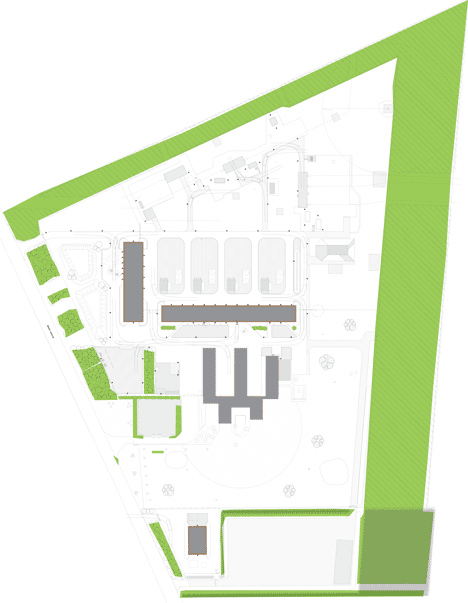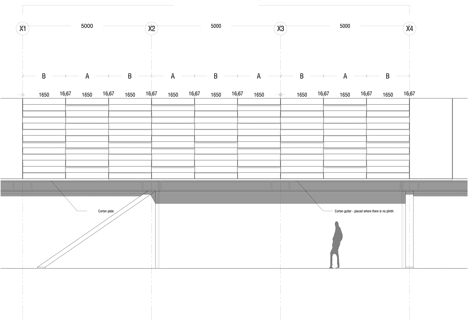Kompressor Station Egtved by CF Møller
This gas compressor station in southern Denmark by Scandinavian firm CF Møller comprises Corten steel-clad boxes atop a pair of artificial hills (+ slideshow).
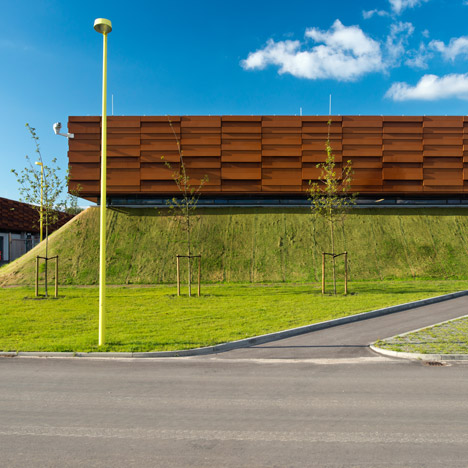
CF Møller was commissioned by Danish energy company Energinet to create the facility as part of a wider government scheme to upgrade the visual appearance of the country's power grid, and the firm has already completed an electricity station with modular panels folding around its exterior.
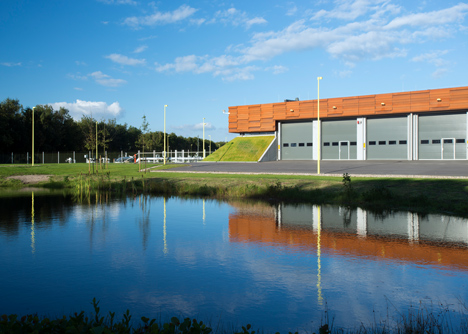
Corten steel panels create a textured surface around the upper walls of the structures, and were chosen because they are easy to maintain and fit in well with the natural surroundings.
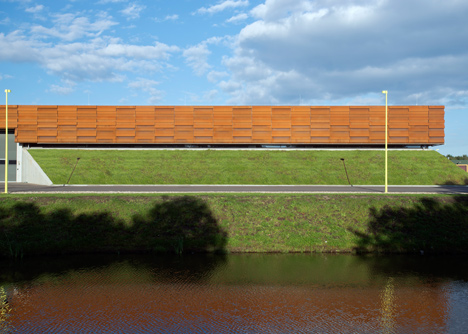
"The plating is juxtaposed to create a varied and vibrant pattern of light and shadow," said architect Julian Weyer. "The combination of materials aims to make the buildings appear rugged and elegant at the same time."
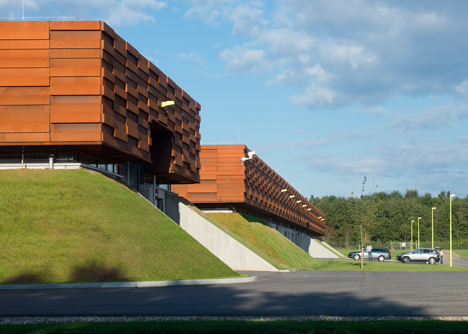
The bases of both buildings are tucked down into the centre of two artificial hills, which are covered with grass.
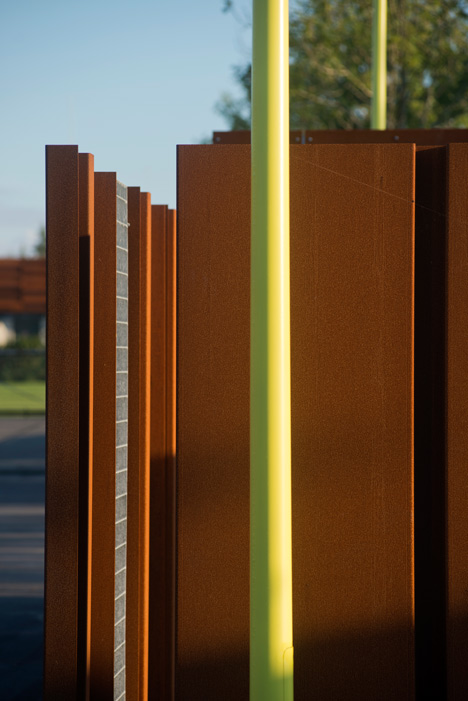
The new technical plant is the first of its kind in Denmark, suppling gas to pipelines as far away as Germany and Sweden.
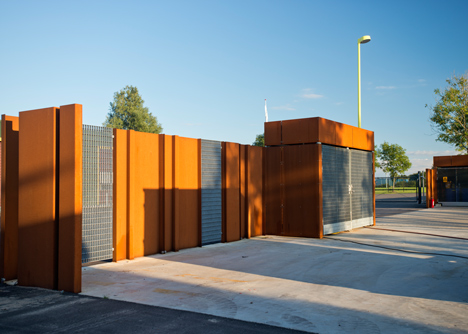
The interior of the plant is divided up into a linear sequence of rooms, accommodating storage areas, fire-extinguishing spaces, workshops, and boiler rooms. Additional buildings on-site accommodate an emergency generator in case of power failure.
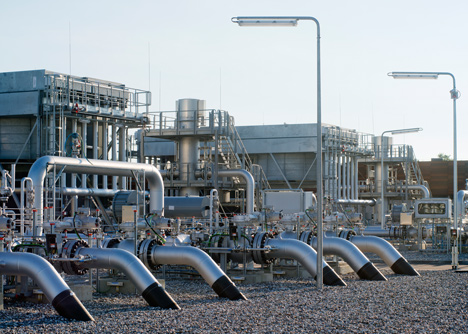
Photography is by Julian Weyer.
Here's a description from the architects:
Gas Kompressor Station, Egtved
Natural gas plant consisting of compressor station and service buildings.
A technical site is normally swaddled in greenery to prevent it from becoming an eyesore in the natural environment. The new Energinet.dk compressor station at Egtved is Denmark's first installation of its kind, and here the opposite is true.
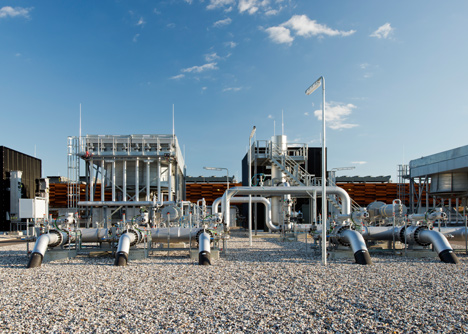
C.F. Møller has designed the plant, consisting of four compressor units and service buildings, as an architectural feature in the open landscape. The form of the buildings was also specially chosen in order to achieve optimum safety conditions at the plant.
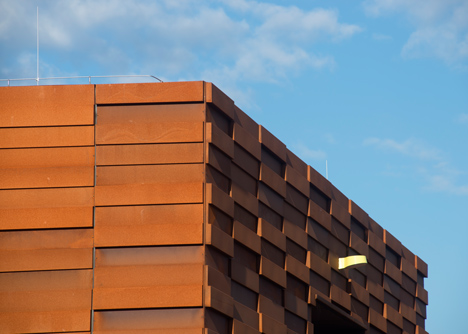
The new technical plant, supplying the central intersection of the gas pipelines connection north-south from Germany and east-west to Sweden, has a landscape-like expression emerging from the landscape as a grassy embankment.
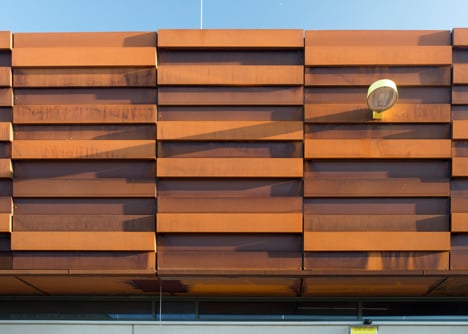
The remainder of the building appears almost to hover over the mound and is clad with rust-coloured Corten steel plating. The plating is juxtaposed to create a varied and vibrant pattern of light and shadow. The combination of materials aims to make the buildings appear rugged and elegant at the same time.
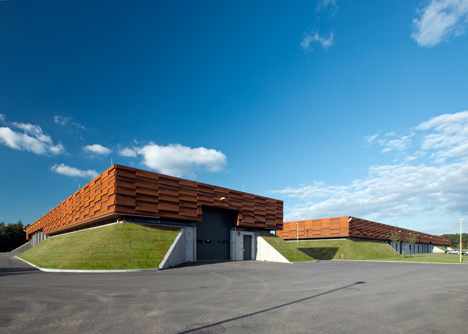
The grass and iron-clad plant houses service buildings, including an emergency generator and storage rooms, and beyond the buildings lies the compression plant itself atop an open plane. The buildings are designed to provide visual, aural and safety screening from the compression units.
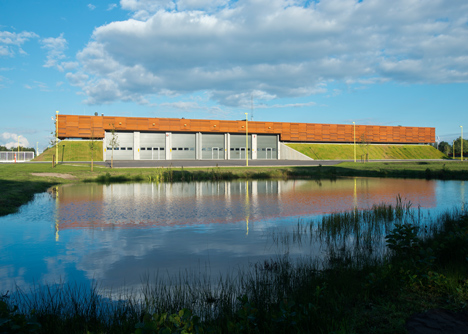
"We began by asking ourselves a question: Can we push the boundaries for how we see a technical plant? Can we create a gas plant in dialogue with the landscape and yet focus on the energy supply infrastructure, on which we all depend?" says Julian Weyer, architect and partner.
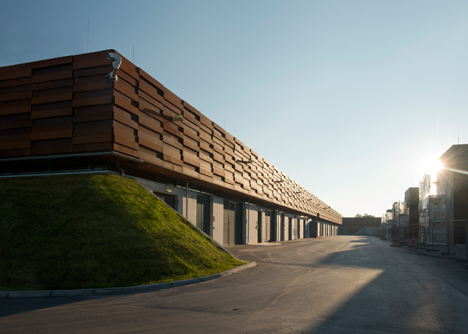
The simple and striking design of the service buildings and substation also provides the opportunity for great flexibility in relation to the functional adaptation of the design in the coming phases.
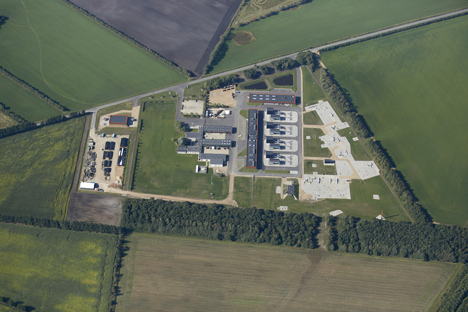
Background
Natural gas supplies from the North Sea are dwindling. To ensure a regular and safe energy supply in the future, Denmark has to be able to receive gas from continental Europe.
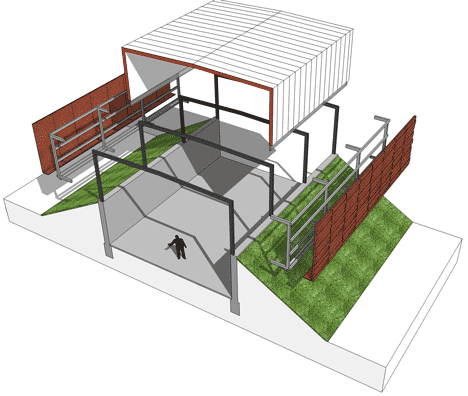
Energinet.dk has therefore constructed 94 kilometres of "gas motorway" from Egtved to Germany. This extension of the fossil gas system may well be a decisive step on the road to a green energy system, which is projected by 2050 to use only renewable energy.
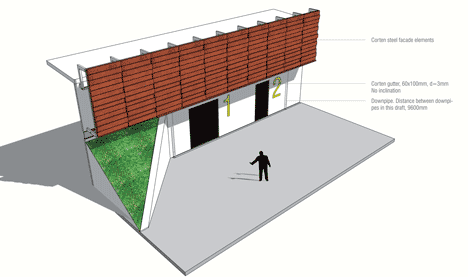
Client: Energinet.dk
Address: Egtved, Denmark
Engineering: Niras A/S
Architect: C. F. Møller Architects
Landscape: C. F. Møller Architects
Size: 4.600 m² new-built and 20.000 m2 compressor station
Year: 2010-2013
